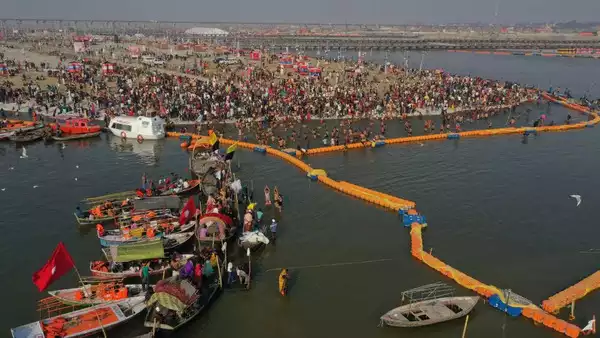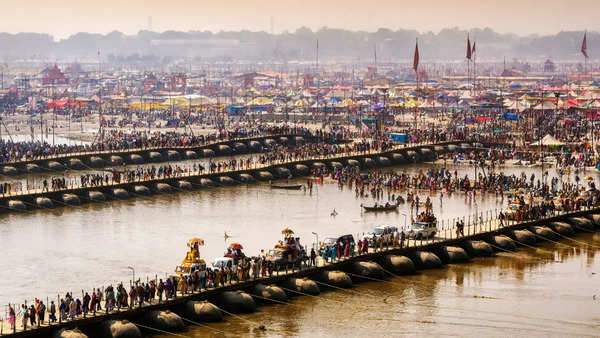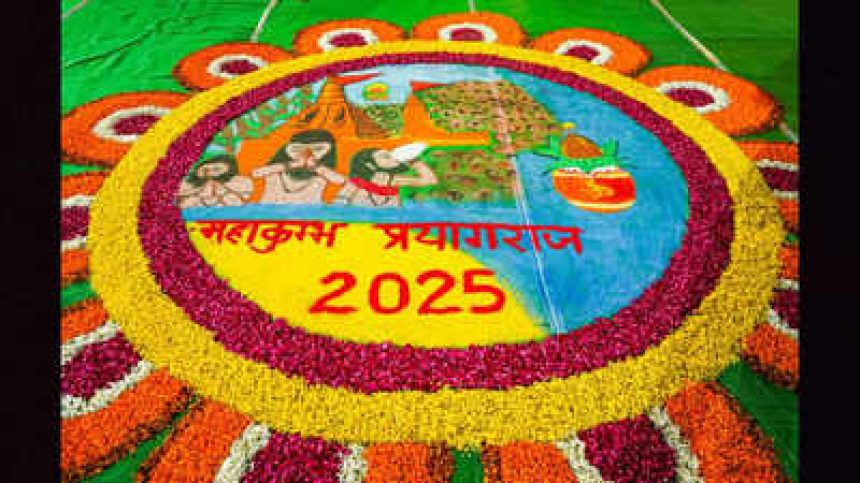The Kumbh Mela has forever been the world’s largest gathering. It is the grand spiritual festival that brings together sages, saints, ordinary men and women, children, students, pandits, and many more. The Kumbh Mela has forever been associated with taking a dip in holy rivers to cleanse oneself of sins and walk on the path of moksha thereon.
The Kumbh Mela is organised in 4 main sites – Haridwar, Prayagraj, Ujjain, and Nashik. And the Maha Kumbh of 2025 is being organised in Prayagraj, Uttar Pradesh.
Mahakumbh dates 2025
In 2025, the Mahakumbh in Prayagraj will start on 13 January, Monday and will continue till 26 February, Wednesday, amounting to 44 days.

The origins of Kumbh
The origins of Kumbh Mela go as far back as the Samudra manthan. When the churning of the ocean was going on, before the Amrit emerged, also came forth poison, divine beings, elephants, and more. And when the Amrit did emerge, it was not to be given to the Asuras in any chance. And so, when Lord Vishnu took the roop of Mohini, and ran away with the Amrit in a pot (Kumbh), a few drops of the Amrit is said to have spilled in 4 places which later became the 4 holy cities of Haridwar, Prayagraj, Ujjain, and Kashi.
Types of Kumbh
While the world will witness a Maha Kumbh in 2025, this isn’t the only type of Kumbh Mela. There are four types of Kumbh mela – The Maha Kumbh, the Ardh Kumbh, the Purna Kumbha, and the Magh mela.
Maha Kumbh
The Maha Kumbh is only held once in 144 years! It is believed that the Maha Kumbh mela comes after 12 ‘Purna Kumbh Mela’ and is only organised in Prayagraj.
Ardh Kumbh Mela
The Ardh Kumbh is held every 6 years between two Purna Kumbh Melas. These are organised in Haridwar and Prayagraj.

Purna Kumbh
The Purna Kumbh is organised once every 12 years, and this can happen in any of the four locations – Haridwar, Prayagraj, Nashik, and Ujjain.
Magh Mela
The Magh Mela is organised every year, and is known as the ‘Chhota kumbh’. It is organised in Prayagraj during the month of Magha, which is January-February.
The Shahi snan
The Shahi Snan is one of the most important parts and rituals of the Kumbh mela. Many ‘Akhadas’, which are basically the orders and groups of saints and ascetics, take part in the Shahi snan in the Triveni Sangam, as certain dates are decided for the Shahi snan.
The Akhadas arrive at the rivers in grand ways, from elephants to expensive cars and chariots, and it is believed that the Shahi Snan has the power to cleanse one’s soul and make their way to liberation easier.
Having a Shahi snan during the Maha Kumbh is a once-in-a-lifetime opportunity for people as the Maha Kumbh arrives after 144 years.
Shahi snan dates for Maha Kumbh
For Maha Kumbh 2025, the Shani snan will be on the day of Paush Purnima, which is January 13. Then on Makar Sankranti, January 14, then on Mauni Amavasya, which is on January 29, after that on Basant Panchami, which is on February 3, followed by Maghi Purnima, on February 12, and will end on Maha Shivratri on February 26.
All you need to know about Maha Kumbh
The Maha Kumbh is a journey and experience like none other. People start preparing for their stays and puja rituals months in advance, and it is like the perfect gathering where religion and spirituality unite.
There are massive crowds all through the days, and the sheer scale of the Kumbh Mela is awe-inspiring. There are millions of people, tight security all around, the holy rivers are packed with devotees, and the air exudes love, divinity, and unity with the supreme powers.
There are bhajans, kirtans, jagratas, shankhnaad, and so much more.
The Kumbh melas are also the place where people can see the saints and sages of the highest orders, the Naga Sadhus and Aghoris who have given up all ties with family and bonding, and ascetics who live and have spent life without clothes no matter how cold it gets.
From Sadhus to sport elaborate deadlocks, to saints who haven’t put their hand down in decades, one can see it all in the Kumbh.
And as a Mela would not be complete without fair and festival-like energy, there are cultural programs, exhibitions, shops, stalls to eat, swings to enjoy, and people who set up shops to sell souvenirs.








